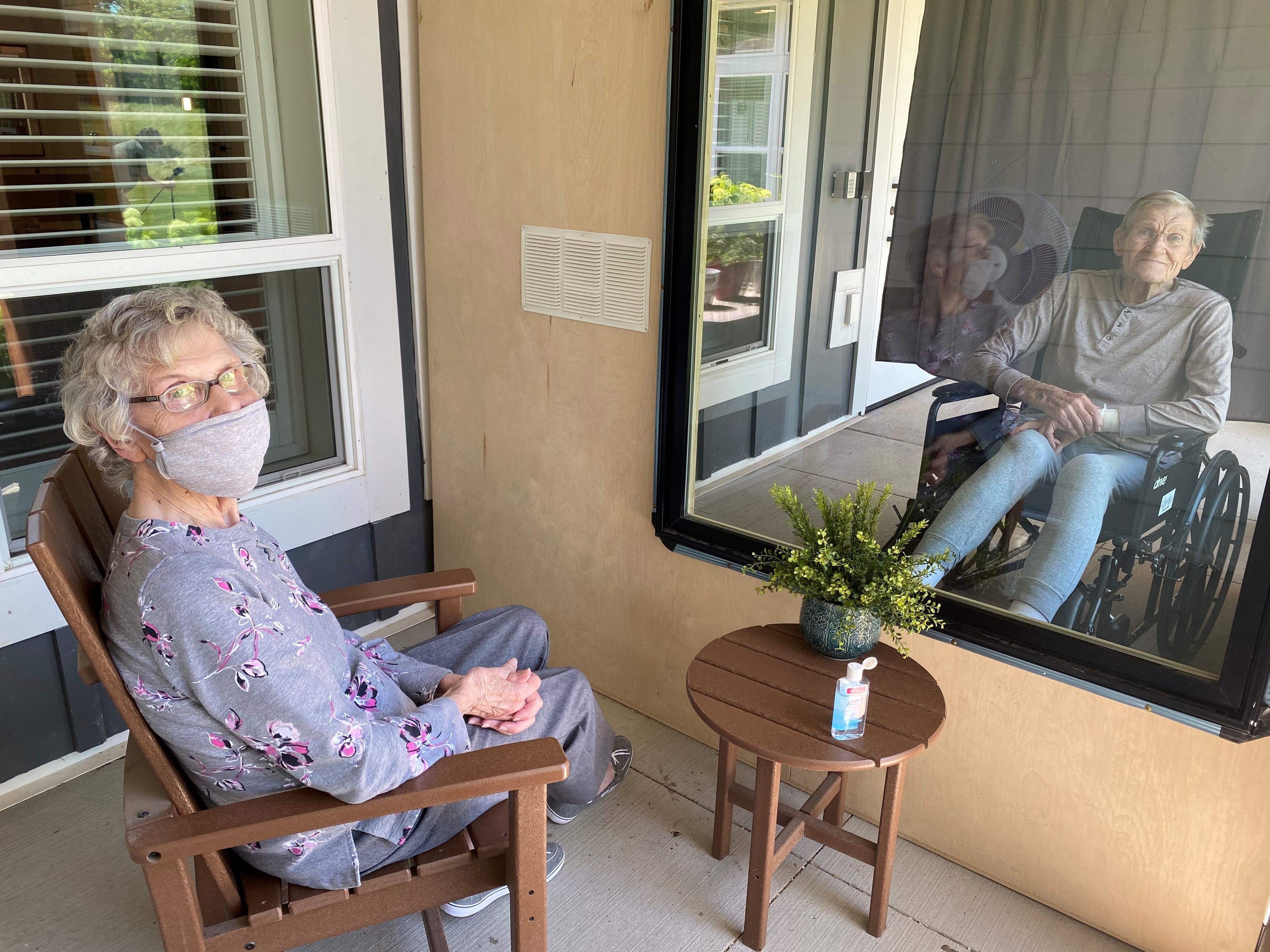Table of Content
All these services must be provided in a community setting, whether it’s the individual’s home, a residential care facility or an adult day health care facility. The total cost of the services for an individual must be cheaper than what they would pay for nursing home care. Long-term care insuranceLong-term care insurance is designed to cover expenses related to custodial care, including nursing homes.
The Quad Cities Living Well Cares organization is a nonprofit offering resources and services for low-income seniors and people with disabilities. The group helps seniors navigate long-term care options and make elder care decisions. As the Supreme Court Justice Potter Stewart once said, “I’ll know it when I see it,” determining the cost of nursing home care can vary widely depending on location, need, and availability. We have found that by working with our colleagues at Iowa’s best nursing homes, we have been able to shed some light on the pricing of various nursing homes. The more care a loved one needs, the more the facility will cost—painting with a broad stroke of course. The most expensive specialized nursing facilities are those that cater to people that require respirators or other assistive breathing devices.
Most Expensive States for Nursing Home Care
To qualify for these programs, you must be Medicaid-eligible and require care that necessitates moving into an institution, but you are able to stay at home. Though its average costs for in-home care and home health care are higher than national averages by about $500 a month each, Iowa has a fairly moderate price compared to nearby states. For example, in Illinois, both types of care cost $5,339 a month, about $200 less than in Iowa, while in Wisconsin, the cost is almost the same at $5,529 and $5,720 a month.
Located in Iowa City, Iowa, the Oaknoll Retirement Residence offers easy access to several parks, shopping centers and restaurants. Residents and visitors also give accolades to the warm, friendly staff who go above and beyond to make the facility as much like home as possible. According to the Genworth 2019 Cost of Care Survey, the average cost of 44 hours per week of in-home care is $4,767. Actual costs vary depending on location and can be higher or lower than the state average.
II. Can Medicaid Help You Pay for Home Care in Iowa?
One resource discusses state health insurance plan options and financial assistance for seniors who are looking at moving to long-term care in the near future. In-home care covers a wide variety of types of services – from health care to companion care – and the cost of care varies accordingly. The largest drivers of cost will be what level of care is required and how much care is required. Requiring 24 hour care from registered nurses will likely be at least twice as high as the $4,576 average. Comparatively, occasional home care from specialists or people helping with household chores will likely cost significantly less than the average long-term care costs.
If you’re comparing senior living options for yourself or a loved one, you have a few to choose from. Think of it this way — “nursing home” is actually somewhat of an umbrella term that can refer to rest homes and similar facilities. Meanwhile, assisted living and in-home care are both alternatives to these traditional skilled nursing facilities . Facilities should plan for rehabilitative services that help residents maintain function and carry out activities of daily living. Seniors in Iowa can get assistance leaving nursing care through the Return to Community program.
Cost of In-Home Care vs. Nursing Homes For Seniors
Seniors seeking this coverage must apply for the Elderly Waiver. Seniors in Iowa can choose to age at home or select another type of senior care available in the state. Nursing home care is the most costly care type, averaging $6,874 a month for a semiprivate room. For assisted living, seniors pay an average of $4,367, more than $1,000 less than in-home care. Adult day care is the most affordable, with an average cost of $1,353 a month.

Which requires you as th client to retrain a new provider often about your home an routine. The majority are very willing to do as you ask The agency is very responsive to your requests. Iowa’s Home and Community-Based Elderly Waiver, a Medicaid waiver, includes benefits that cover specific modifications to member’s homes and vehicles.
Nursing homes provide constant medical care and supervision to seniors with chronic conditions who require a level of care and assistance. Services are administered by registered nurses and as a consequence of this, nursing home care is generally an expensive option. Seniors in Ames who don’t require such a high level of care may want to look at alternative care options such as assisted living and home care services. Ames is a city in central Iowa that is located about 30 miles north of Des Moines. It has a population of 66,258, and just under 10% of residents are aged 65 and over. Seniors in Ames have access to a range of excellent medical services at the Mary Greeley Medical Center, which is rated as high performing in four procedures by USN health ratings.
Geoff has had several family members graduate through different levels and different types of senior care. He writes on Senior Care Advisor to help other families as they go through the senior care journey with a loved one. The first step in estimating how much in-home care will cost is to determine what care is required. It is often beneficial to estimate not only the cost for the current care requirements, but to estimate out the anticipated costs in the future based on an increased level of care.
To qualify, a single adult must earn less than $30,276 a year and possess countable assets of less than $2,000. The rates for a Health Aide ranged from a low of $18 to a high of $48. The 2012 average was the same as the 2011 average of $26 per hour. The average cost in 2012 for a homemaker was $23 per hour. If income and assets are over the allowable amounts, this does not automatically call for Medicaid disqualification.

The older you are and the poorer your health, the more difficult to obtain coverage at an acceptable cost. Persons with a family history of Alzheimer's or other degenerative diseases are at higher risk of needing nursing home care. In addition, women, who make up roughly 90% of current nursing home residents, usually outlive their spouses and are at higher risk of needing nursing home care. My daughter was at St. Anthony’s for dialysis, and she had several things. They had her in the rehab part; she did not get all that close attention.
You can apply for Medicaid through your local Department of Human Services office. For greater convenience, you can apply for services online through theDHS Services Portal. Payments can be complicated with Medicaid because there are deductions and income limits to keep in mind, so many people choose to work with a Medicaid planner to figure out their options.

Currently, there is no vaccine mandate in place for agencies that provide non-medical in-home care. The Iowa Department of Veterans Affairs serves older veterans in Iowa through county offices. At these locations, veterans and their families obtain benefits counseling and assistance with enrolling in programs that may help pay for in-home care. Local offices can also connect qualifying individuals with community-based services, such as transportation, counseling and medical care. In general, Medicare does not cover the cost of non-medical home care. To qualify for the Elderly Waiver, applicants must be at least 65 years old, and they must require a nursing home or skilled nursing level of care.
Average Costs of In-Home Care
For seniors that need a higher level of supervision and assistance due to Alzheimer’s or a related condition, Memory Care assisted living is available at an additional $902 to $1,150 / month. It is estimated the added cost is 20% to 30% greater than is the cost of traditional assisted living. Medicare doesn’t pay for non-medical home care, but it can cover the cost of the medical version of home care, called “Home Healthcare” in some situations. In order to be eligible, you need to be homebound and have a referral from your doctor for the specific type of medical care that is needed. Unless there is a medical need for a private room in a nursing home, Medicaid will pay for a shared room only.
I asked the nurse to call the doctor and have her an appointment made so I could get her into the doctor, and she told me no. One of the nurse aides was up there took her over there, but the girls didn’t even stay with her that evening. I met a lady that was in that room with her, her son and with a little baby, they were in the morning, afternoon and they were until evening when I was about go to home. And said she can’t sleep with that TV on, and Candy said I can’t sleep with it on.

No comments:
Post a Comment